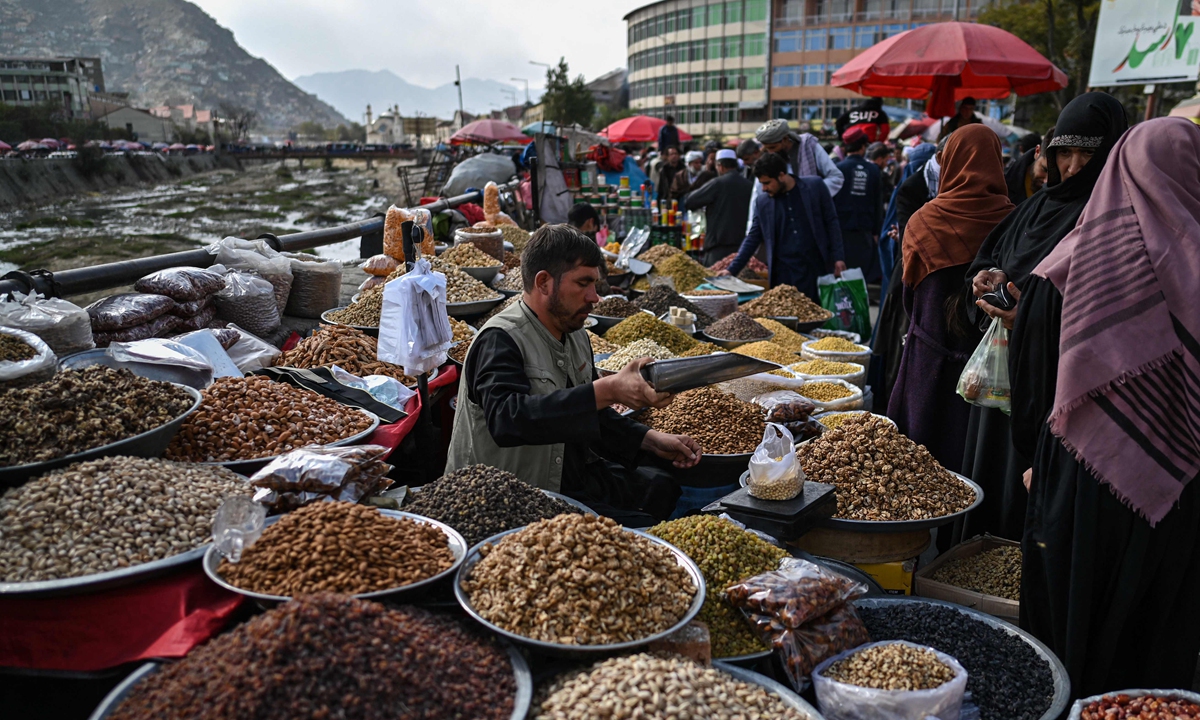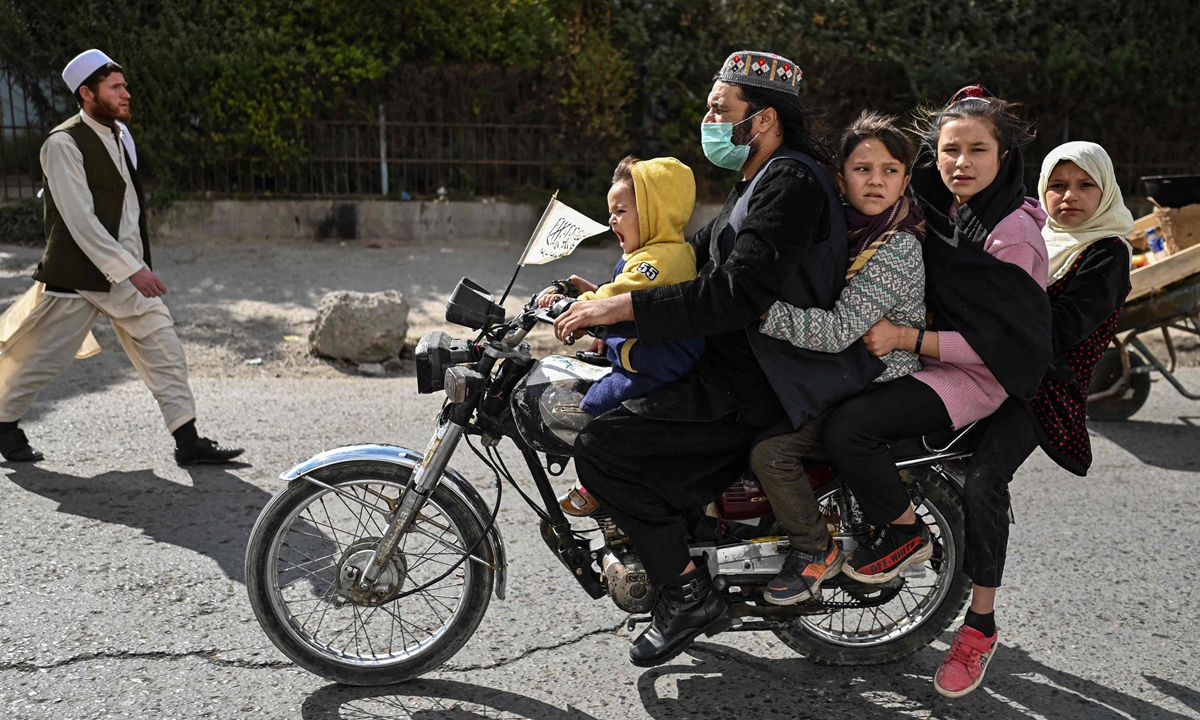ARTS / BOOKS
Love for literature inspires disabled Afghan writer

An Afghan vendor sells dry fruit along a street at a market area in Kabul on October 29, 2021. Photo: VCG

A man rides a motorcycle with a boy and three girls along a street in Kabul on October 29, 2021. Photo: VCG
A love for literature has inspired Ashraf Frough, a disabled Afghan writer, to continue writing and publishing books at a time when Afghanistan is mired in dire economic troubles.Both legs paralyzed, Frough continues to write books to promote literature and art.
Since the takeover of Afghanistan by the Taliban in mid-August and the formation of the Taliban-led caretaker government on September 7, the war-torn country has been suffering economic woes with tens of thousands of people forced to flee Afghanistan.
When Frough was only 10 years old, he was seriously wounded in the spine by shrapnel from a rocket, leaving him paralyzed.
"The 20-year war and conflicts had a very negative impact on all aspects of Afghans' lives, especially the writers and book publishers. I have published three books, two of which were published after the Taliban's takeover," Frough, who lives with his family of eight, told the Xinhua News Agency.
"The publication and writing of books has been the only way to cure my pain after my disability," he said.
The two-decade war and bloodshed deprived authors and publishers of chances to promote reading and literature in Afghanistan.
"Peace has returned after decades of conflict but the war and poverty still have a huge negative effect on literature and culture. As you know following the change of regime this summer, hundreds of Afghan historians, writers and cultural figures have left Afghanistan," he said.
"All these prompted me to make up my mind to continue writing and publishing works," the wheelchair author said, adding that plenty of unfinished works in literature and language remain.
A Kabul University student in language and literature, Frough chose to stay in Kabul after the US and NATO forces abruptly withdrew from Afghanistan in late August. He stayed at home, continuing to write and publish books.
Interested in writing love stories, the disabled writer has published three stories - two of them Letters of Malila and Khar-i-Isa (Jesus's Donkey) after the Taliban's takeover.
Since being critically injured when his house was hit by a rocket, Frough has been immersed in reading and writing books.
The young man calls on Afghan artists and writers to get together to keep the country's culture and literature alive.
"I am doing my best to keep our culture and literature alive as I did over the last 20 years," he said.
The unexpected US troop withdrawal left nothing but chaos, hunger and poverty in the impoverished nation, forcing everyone here to fight for a loaf of bread to survive, said Frough. "But I want to keep the spirit of culture and literature alive in my country."
Nasir Maqsoudi, owner of Maqsoudi Publishing House, which published Khar-i-Isa, said war, conflict, the COVID-19 pandemic and droughts have worsened the economic plight of Afghans.
"The war and conflict had discouraged the business of publication in Afghanistan for so long," Maqsoudi said.
Chief Editor of the Darwaz Publishing Center Tareq told Xinhua that it will take time for the publishing industry to return to normal in Afghanistan.
"People cannot afford daily necessities and basic commodities now, so how can they buy books?" the publisher explained.



